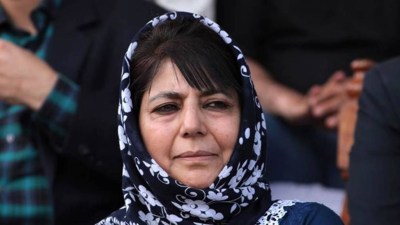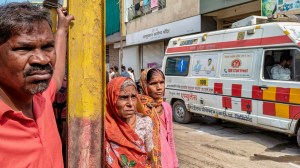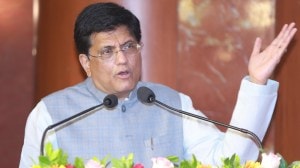Looking at Nepal
After a period of 8216;studied silence8217;, the CPM mouthpiece has come out with an article hailing the Nepal election results.

After a period of 8216;studied silence8217;, the CPM mouthpiece has come out with an article hailing the Nepal election results. Welcoming the results, People8217;s Democracy says that 8220;it is a clear and ambiguous verdict against the monarchy and for the transition towards a democratic republic.8221; The elections have drawn worldwide attention, of course, for the impressive performance of the Communist Party of Nepal Maoists.
The article expresses hope that with the formation of the Constituent Assembly, work will now begin for the formation of a democratic republic on federal lines with the cooperation of all the parties of the Eight Party Alliance that 8216;assiduously8217; worked with the Nepali people towards this historic development.
8220;The change in Nepal should be the basis for the consolidation of bilateral relations between India and Nepal on the basis of equality and co-operation,8221; it has said. The article asks the Indian government to make it clear that 8220;it has nothing in common with the negative and hostile stand taken by the US which declared the Maoists to be a terrorist organisation.8221;
Talk about PDS
People8217;s Democracy has devoted much space to the joint agitation carried out by the Left and UNPA against price rise. Asking the government to take immediate action to contain price rise in essential commodities, PD has reiterated the Left position on the issue. Its demands include strengthening the PDS by universalising it, restoring the cut in foodgrain allocations to states, banning future trading in 25 agricultural commodities, cutting customs and excise duties on oil and reduction of retail prices of petrol and diesel. It also asks the Union government to strengthen the provisions of the
Essential Commodities Act to empower state governments to deal with hoarding and black marketeering in a better way.
Quickly quota
Welcoming the Supreme Court judgment, the SFI asks the government to take steps to implement the reservations in the current year itself. 8220;The government should follow the same criteria for OBC reservations in private educational institutes too,8221; it has demanded. It also asks the government to enact a central legislation to ensure social control over unaided private educational institutions to regulate their admission process, and ensure control over the fee collected and course content.
Remember CMP
An article says that the UPA government has failed to ensure the welfare of unorganised sector workers who constitute 93 per cent of the total work force though the common minimum programme had promised to do so.
The Arjun Sengupta commission, it says, had recommended separate bills for unorganised workers and agricultural workers. Citing the NSSO report, the article states that a large majority of workers work in the most terrible conditions with no protective legislation for guaranteed income, social security or safe working conditions.
The article alleges that the bill that the government has brought out makes a mockery of the recommendations of the commission. It says that the 8216;aam aadmi bima yojna8217; devised by the government is ineffective as it excludes the major chunk of the work force. Drawing parallels with Left governments, the article states that the governments in West Bengal, Kerala and Tripura have come out with more effective social security measures.
- 01
- 02
- 03
- 04
- 05































